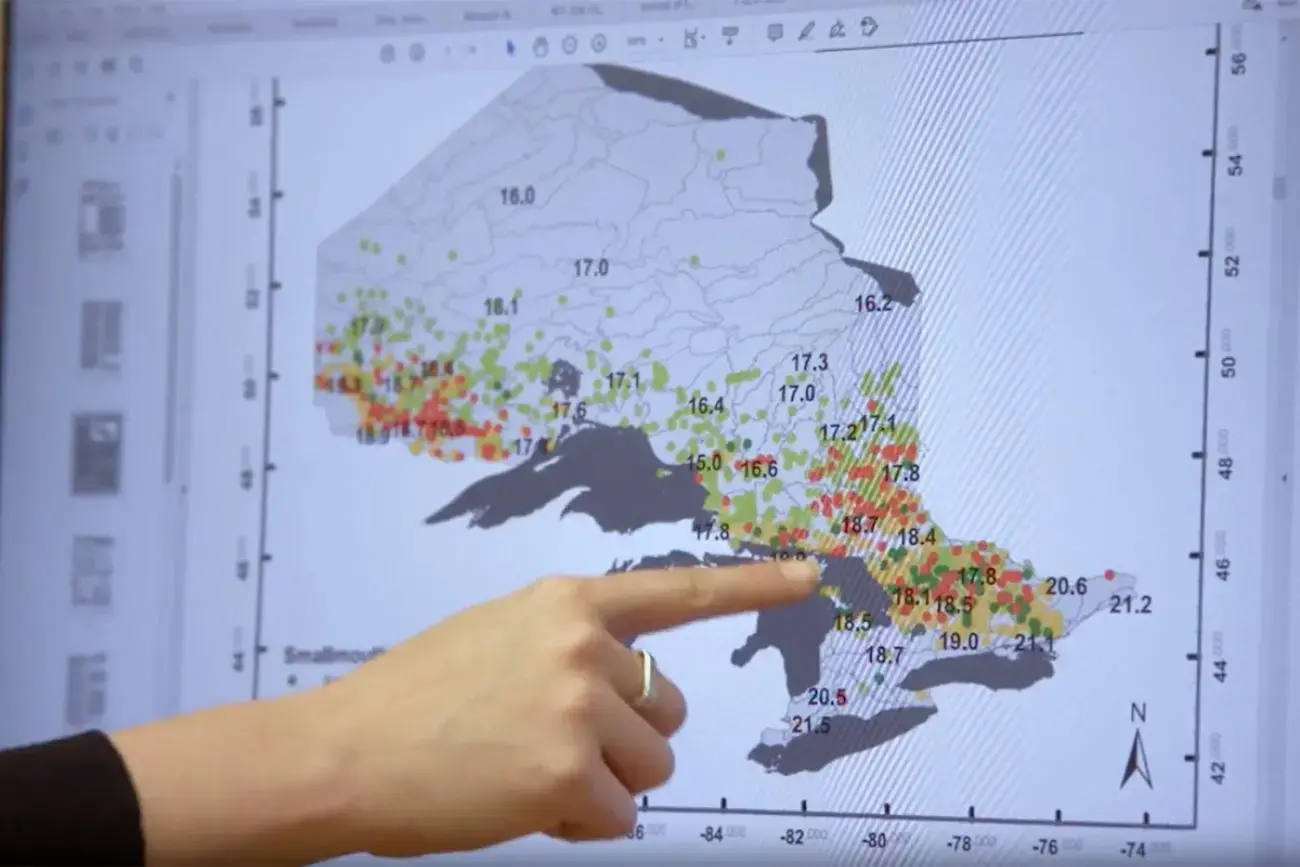
- Great Lakes fish are relatively young, evolutionarily speaking, but have faced many crises
- The latest is climate change, a U-M professor says
- The lakes are home to 150 species of fish and warmer temperatures threaten whitefish, burbot and others
Geologically speaking, the Great Lakes and the aquatic life within them are relatively young at a few thousand years old. Yet in their short life, they’ve contended with many changes, from invasive species to overfishing.
Now, climate change poses a new existential threat.
As fossil fuel consumption heats the world’s atmosphere, the fallout extends to a Great Lakes ecosystem that’s home to 150-plus native fish.
Warming waters are already changing the distribution of freshwater fish in the basin, causing warm water fish like bass to move into areas that formerly were too cold for them to thrive.

As a nonprofit journalism organization, we depend on your support to fund our nationwide Connected Coastlines climate reporting. Donate any amount today to become a Pulitzer Center Champion and receive exclusive benefits!
And conversely, warming temperatures threaten the future of cold water fish like whitefish and burbot, which spawn on ice-covered Great Lakes reefs.
But as those threats unfold, “humans can have a lot of impact on preserving that biodiversity,” said Karen Alofs, an assistant professor at the University of Michigan who studies the impacts of warming temperatures on fish in the Great Lakes.
Work to preserve Michigan’s native fish ranges from efforts to cool the streams that flow into the Great Lakes by planting shade trees and removing dams, to habitat restoration and invasive species prevention efforts that aim to ease other threats to the fish so they can better withstand warming waters.
And amid the threat of warming, species managers in Michigan aren’t giving up hope of returning a native Goldwater fish already lost to human forces. The state is seven years into an effort to reintroduce Arctic grayling to Michigan’s rivers.






